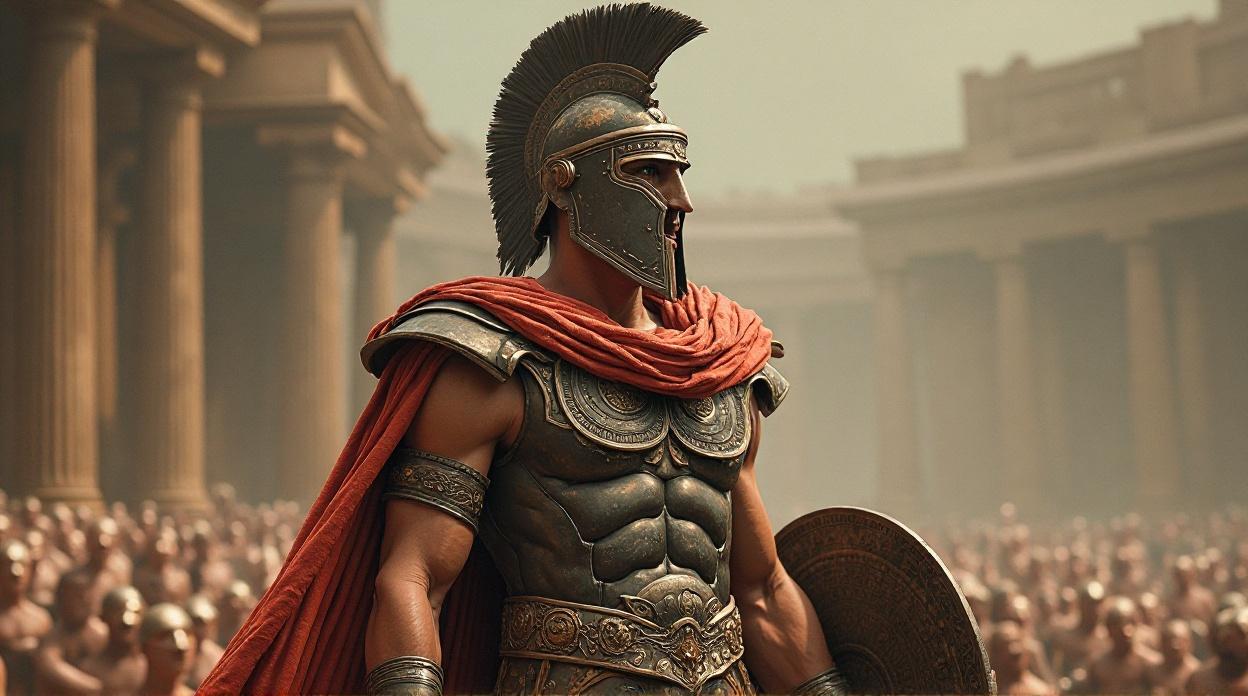Ares, the son of Zeus and Hera, stands as the god of war in Greek mythology.
Unlike his sister Athena, who represents strategic warfare, Ares embodies the chaotic and violent aspects of battle. His name itself suggests his nature, often linked to words signifying conflict and strife. According to myth, Ares was a fierce warrior, often depicted with his helmet, spear, and shield.
He was known for his uncontrollable rage in battle, which often led to chaos and destruction. His presence on the battlefield was said to inspire fear and terror in his enemies. While not as revered as other gods, Ares played a significant role in many Greek myths, often engaging in conflicts with both gods and mortals. His stories highlight the brutal and often chaotic nature of war, and his influence can be seen in literature and art throughout history.

أريس، ابن زيوس وهيرا، يُعتبر إله الحرب في الأساطير اليونانية. على عكس أخته أثينا، التي تمثل الحرب الاستراتيجية، يجسد أيس الجوانب الفوضوية والعنيفة للحرب. اسمه نفسه يشير إلى طبيعته، حيث يرتبط غالبًا بالكلمات التي تدل على الصراع والنزاع. وفقًا للأسطورة، كان أيس محاربًا شرسًا، وغالبًا ما يُصور بخوذته ورمحه ودرعه.

كان معروفًا بغضبه الذي لا يمكن السيطرة عليه في المعركة، والذي غالبًا ما يؤدي إلى الفوضى والدمار. ويُقال إن وجوده في ساحة المعركة كان يلهم الخوف والرعب في أعدائه. على الرغم من أنه لم يكن محترمًا مثل الآلهة الأخرى، لعب أيس دورًا مهمًا في العديد من الأساطير اليونانية، حيث كان غالباً ما يشارك في صراعات مع الآلهة والبشر على حد سواء. قصصه تسلط الضوء على الطبيعة الوحشية والفوضوية للحرب، وتأثيره يمكن رؤيته في الأدب والفن عبر التاريخ.
Leave a comment
Your email address will not be published. Required fields are marked *















